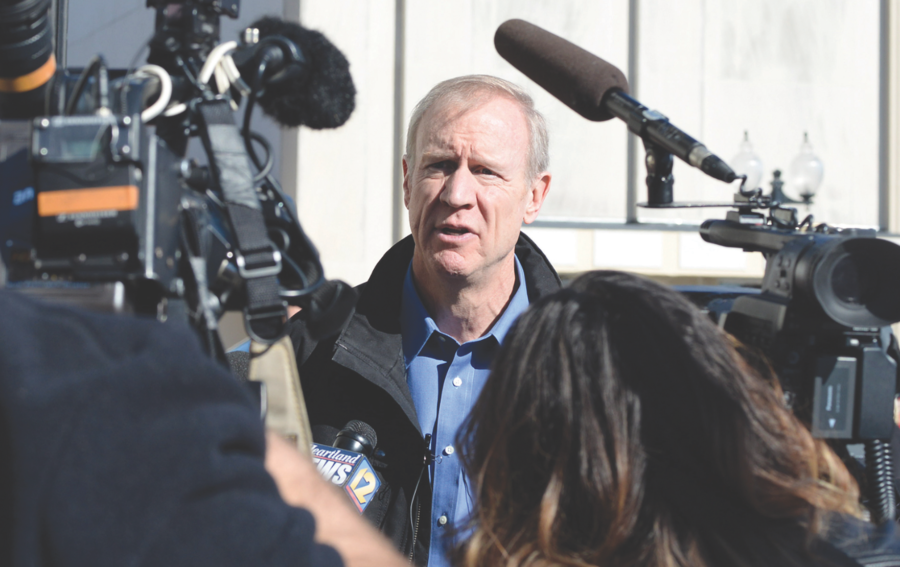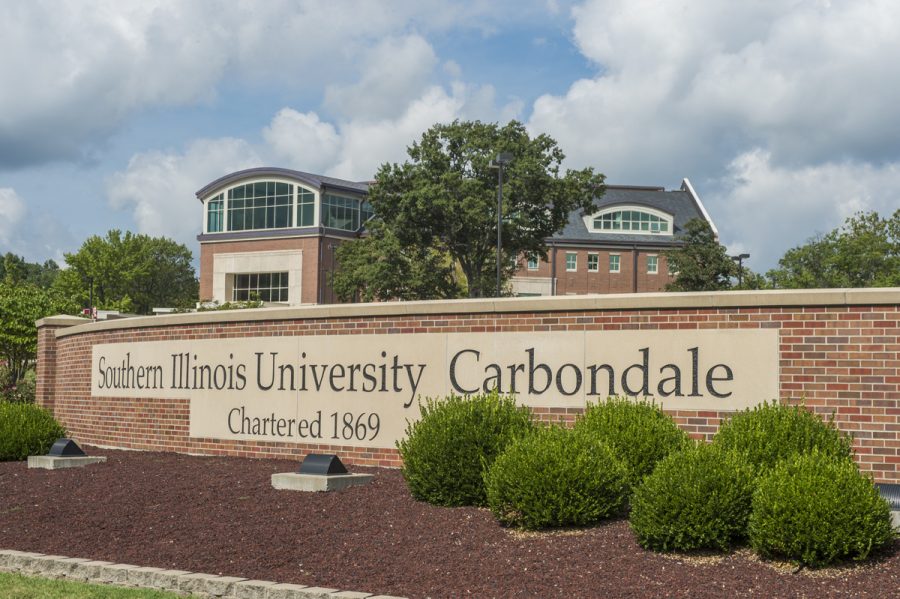Gov. Rauner’s opioid task force visits Decatur for advice, stories of tragedy
November 2, 2017
A statewide committee formed to address the deadly opioid epidemic on Wednesday came to Macon County, where four deaths so far this year have been attributed to abuse of the substance.
The Governor’s Opioid Overdose Prevention and Intervention Task Force co-chaired by Lt. Gov. Evelyn Sanguinetti and Donald Kauerauf, assistant director of the Illinois Department of Public Health, held a field hearing for more than two hours at the downtown Macon County Office Building. The discussion included an invited audience of around 100 that included doctors and health care workers, politicians, law enforcement and the Macon County coroner.
The task force is looking for information to help it implement the Illinois Opioid Action Plan, which aims to cut the number of opioid-related deaths by one-third in three years. The state had 1,900 opioid overdose deaths in 2016, 11 of which were in Macon County.
Advertisement
Kathy Burkham’s 23-year-old son Tyler Yount was killed by an overdose involving a cocktail of powerful drugs in 2009. Along with her paramedic husband, Michael, she channeled her grief into creating the Tyler Yount Foundation. It has established a state-certified Naloxone program that has seen more than 400 first responders and others trained to administer the life-saving antidote that reverses opioid overdoses.
Michael Burkham told Sanguinetti that, so far this year alone, there had been 164 Macon County emergency calls where Naloxone was used. Out of those calls, “118 were actual drug reversals where somebody’s life was saved.”
The real trick, said Kathy Burkham, is keeping those saved alive for the long term so they don’t drift back into drug use. She said addicts needed access to extended care and their families needed access to knowledge and support services so they can work to prevent relapses, which is what had killed her son.
“As a parent I was lost and completely alone. I didn’t know where to turn,” she said. “I ended up knowing far more (about drug addiction) because my son died then I ever knew when he was alive. I think we need a lot more time to work with our sick children while they are in a long-term recovery program.”
Some addicts can end up being revived multiple times and Timothy Macken, executive director of the Macon County Mental Health Board, said it may be necessary for society to insist addicts get treatment. “Maybe at some point you have to force people to engage in treatment,” he said.
Dr. Dennis Rademacher, director of the HSHS St. Mary’s Hospital Treatment Center, said addiction must be recognized for what it is, a disease. He urged the state Task Force to work to ease legal restrictions on doctors which limit the prescription use of treatment drugs like Suboxone, which helps give “addicts their life back.”
Rademarcher said drug addiction is a terrible malady but it can be beaten with the right treatment and help and a remarkable recovery in health is possible. “The day you take your last drop of opiate, the damage will not get any worse,” he said. “You can’t say that about diabetes, hypertension, heart disease or anything else.”
Advertisement*
Tanya Andricks, the CEO of Crossing Healthcare, said the state must also keep a careful eye on the use of prescription opioids if we want to slow the flow of new addicts onto our streets. “Because six out of 10 of these folks start with prescription medication,” she warned.
With all the advice and opinions sounding out across the room, it fell to Macon County Coroner Michael E. Day to offer a sobering assessment of what is at stake if the state can’t reach out to save addicts and the families who love them.
“The average family unit is no match on its own for heroin or Oxycontin, they’re too powerful,” he said. “Once you get these drugs into your system, once you get it in your mindset, it’s all too powerful; it will overwhelm whatever family ties you have. We have seen that happen time and time again.”
The task force is holding hearings across the state. Gov. Bruce Rauner in September signed an executive order to create the effort.
Last month, President Donald Trump called the opioid abuse a national public health crisis. On Wednesday, the president called for additional drug courts, more training for doctors and penalties for insurers that dodge covering addiction treatment.
More than 64,000 Americans died from drug overdoses last year, most involving a prescription painkiller or an illicit opioid like heroin.
Sanguinetti, in her remarks before the start of the meeting Wednesday, said she did not underestimate the size of the job confronting the task force. And she also said we must all face it together because it threatens all of us everywhere.
“It’s a heroin epidemic, an epidemic which has reached national proportions,” she added. “I would submit to everybody that it is an epidemic that knows no neighborhood, no color, no class; we all know it is an equal opportunity aggressor.”
___
(c)2017 the Herald & Review (Decatur, Ill.)
Visit the Herald & Review (Decatur, Ill.) at www.herald-review.com
Distributed by Tribune Content Agency, LLC.
Advertisement










